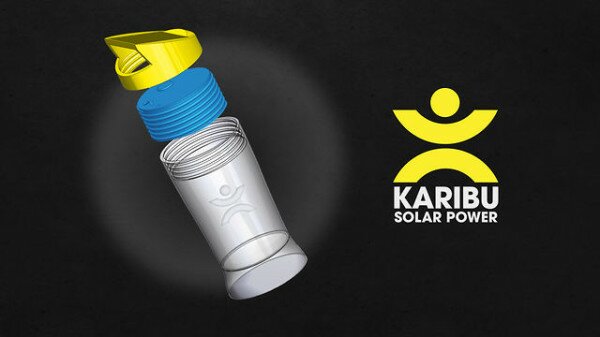
Karibu Solar Power is a Tanzanian startup making high quality solar power affordable by producing a modular solar lamp for lighting and charging mobile phones. The startup has just won the United Nations SEED Award, and HumanIPO caught up with Adam Camenzuli, executive director, to talk about the company
HumanIPO: Why did you decide to apply for the award?
Camenzuli: We applied for it because of the support, both financial and technical, over an extended amount of time.
Winners receive a package of tailored support for their business, access to other supporting institutions and technical assistance, and a financial contribution of US$5,000. How will you put this to use?
We are going to spread awareness, run a pilot, and prepare for launching our new modular solar lamps
How did Karibu Solar Power begin and describe the company’s journey to date?
Karibu Solar Power is an innovative social enterprise that makes high quality solar lighting and mobile phone charging affordable. We produce a modular solar lamp – solar panel, rechargeable battery/mobile phone charger and light – and employ an innovative business model that allows consumers to enjoy the benefits of solar lighting while paying in small increments (just like they would for kerosene). This makes it affordable to the more than 500 million Africans who do not have adequate access to light and energy.
We began bringing solar lamps into Tanzania and we learned that the major barrier for most people was affordability. The average person who would benefit most from a solar lamp could not afford it – we knew we had to change something.
We went back to the drawing board and developed our new modular solar lamp. This new lamp in tandem with the social distribution model allows for solar lamps (and mobile phone charging) to be affordable.
At what stage are you with the products?
We are still raising funds to pilot this new modular solar lamp in Tanzania.
What was the inspiration behind the opening of the company?
From experience we learned that the major barrier to widespread adoption of solar lighting and mobile phone charging was affordability. Solving this problem has been the inspiration for our modular solar lamp design and social business model.
What have been some of the milestones you have achieved so far?
We were successful in winning the Principality of Monaco’s EDGE Business Challenge , which allowed us to interact with potential social impact investors. In addition, we were in the Top 5 at Harvard University’s Social Enterprise Conference.
Recently, we were selected as a Top 4 African Enterprise at INDIAFRICA and met with like-minded entrepreneurs from Africa and India in Johannesburg, South Africa.
We are currently on the ground in Tanzania validating assumptions and speaking with potential customers about the new modular lamp and the social business model. It is exciting to meet with people and see how enthusiastic they become when we talk about our modular lamp and social business model.
What are some of the challenges that you have had and are still overcoming?
There were challenges in developing the new modular lamp, but with our dedicated technology team, especially Brian Camenzuli, we have overcome these challenges.
Given that Africa is experiencing a technology revolution, how has this affected your company?
This has been a benefit for the solar sector. With the increase in technology usage, so increases the need and demand for energy.
How do you plan to take advantage of new contacts made through DEMO Africa this year?
With Africa as the driver for tomorrow’s economic growth, we are anticipating cementing relationships for decades to come.
How has your focus on online marketing helped your business?
This is to promote our social enterprise to the broader African and international community. It has helped us link with top-minded mentors and practitioners from around the globe.
What do you think about the tech scene in Africa?
It is very exciting and I am excited to be involved. This is the future.
Do you think enough is being done as far as tech incubation is concerned and what are your recommendations?
I think technology incubation is doing a good job. To improve, it would be good to see more assistance with legal and technical aspects of launching a venture.
How would you like to see the general tech scene change in Tanzania?
There are many great ventures like www.popote.co.tz and KINU is a great hub for innovation. It would be great to see more ventures/hubs like these.
While most startups begin well, some fail within a short time. Why do you think this is?
From my education and experience, two major reasons startups fail are communication issues and managing cash flow.
What is your recommendation on this?
Regarding communication, [there needs to be] clearly-defined objectives and expectations and for cash flow, strong internal controls.


















